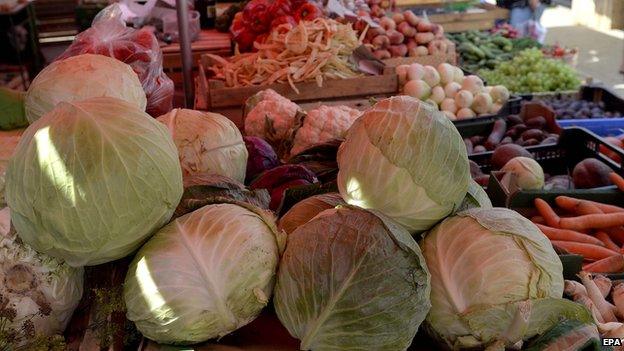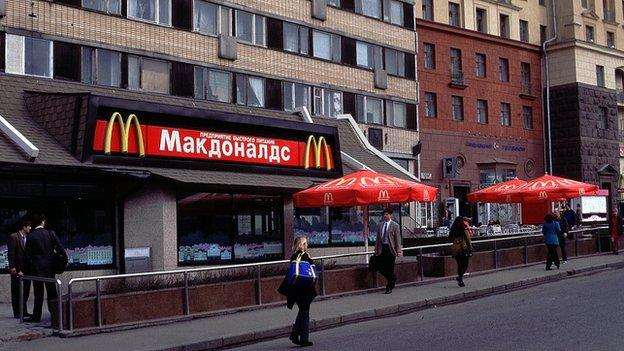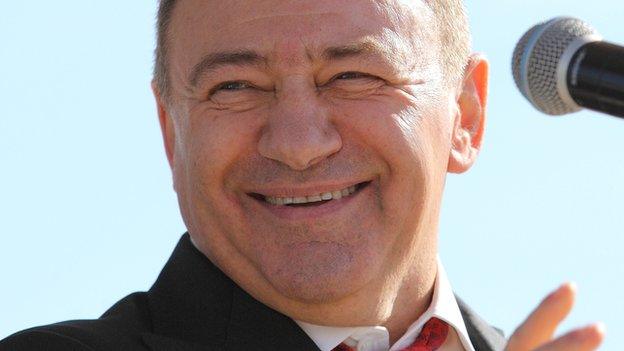Russia bans Polish fruit and veg amid sanctions war
- Published
Polish fruit and vegetable growers plan to seek compensation from the EU for the loss of earnings
The Russian authorities have introduced a sweeping ban on imports of fruit and vegetables from Poland, depriving it of a major export market.
Russia's food hygiene authorities said the imports had unacceptable levels of pesticide residues and nitrates.
They earn Poland more than 1bn euros (£795m; $1.3bn) annually. Russia is Poland's biggest market for apples.
The move follows EU sanctions against Russia over Ukraine - and Poland has condemned Russian actions there.
Poland and some other former communist bloc countries are among the most vocal critics of Russia in the current crisis, accusing Moscow of supplying the separatist rebels in eastern Ukraine with arms and volunteers.
The cost to Poland of the import ban is likely to be 0.6% of GDP (national output) by the end of the year, Polish Deputy Prime Minister Janusz Piechocinski was quoted as saying.
Agriculture accounts for about 3.8% of Poland's total GDP. Polish growers plan to seek compensation from the EU for the loss of earnings.
Poles have been posting images of apples on social media as a way of protesting against Russia.

Polish growers face big losses as Russians stop buying their produce
Ukraine exports hit
On Thursday Russia announced a ban on more imported Ukrainian food: soy products, cornmeal, sunflowers and fruit juice.
Earlier Russia banned Ukrainian dairy produce and canned fish and vegetables. Last year it banned Ukrainian Roshen chocolate, produced by billionaire businessman Petro Poroshenko, who is now Ukraine's president.
Previously Russia also imposed such boycotts on Georgia and Moldova - former Soviet republics, like Ukraine, whose pro-Western policies have angered the Kremlin.
Russia is an important export market for Georgian and Moldovan wine. Currently Russia is blocking imports of Moldovan fruit. In each case the Russian authorities say they have public health reasons for imposing a ban.
In January - before its March annexation of Crimea - Russia also imposed a ban on imports of pigs and pork from the EU.
The European Commission says that move was "disproportionate", external, closing a market worth 25% of total EU pig and pork exports. In 2013 those exports to Russia totalled 1.4bn euros.
The EU has complained to the World Trade Organization, accusing Russia of breaking the rules. The Russian ban was based on some cases of African swine fever among wild boars on the EU's borders with Belarus.
- Published31 July 2014
.jpg)
- Published25 July 2014

- Published31 July 2014
